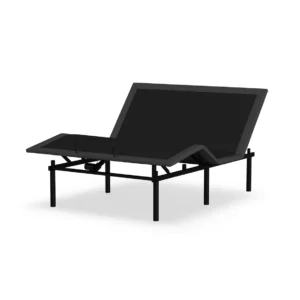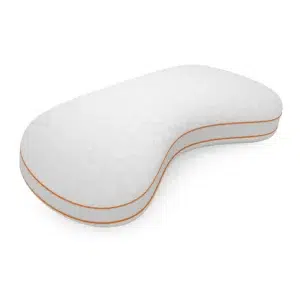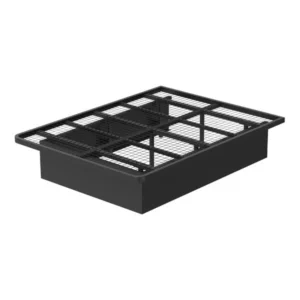GLP1 for Sleep: Top Benefits and Solutions in 2025
Why GLP-1 Might Be the Key to Better Sleep
If you’re looking for glp1 for sleep, this is the place to start. Let’s get right to the heart of the matter:
- GLP-1 receptor agonists (GLP-1RAs) have been shown to improve sleep quality, especially if you have obstructive sleep apnea (OSA).
- Weight loss from GLP-1 medications can significantly reduce OSA symptoms.
- GLP-1 helps in blood sugar regulation, reducing the risk of diabetes complications that can interfere with sleep.
GLP-1 medications, originally used for diabetes treatment, are now being recognized for their broader benefits, including improving sleep quality. Studies, like those on tirzepatide (Zepbound), show that these medications help with weight loss and reduce sleep apnea episodes, which in turn, improves overall sleep.
I’m Ben Trapskin, founder of Yawnder. My journey with sleep improvement began with my personal struggles. Through my research and experience, I’ve learned how GLP-1 can revolutionize sleep quality, particularly for those combatting sleep apnea.
Key glp1 for sleep vocabulary:
Understanding GLP-1 and Its Benefits
Glucagon-like peptide-1 (GLP-1) is a hormone naturally produced in the gut. It plays a crucial role in regulating blood sugar levels and appetite, making it a key player in weight loss and diabetes management.
How GLP-1 Works
When you eat, GLP-1 is released into your bloodstream. It has several important functions:
- Regulates Blood Sugar: GLP-1 helps your body release insulin when blood sugar levels are high. This keeps your blood sugar stable.
- Slows Digestion: By slowing down the emptying of your stomach, GLP-1 helps you feel full longer.
- Controls Appetite: GLP-1 signals your brain that you’re full, reducing your appetite and helping with weight loss.
These effects make GLP-1 receptor agonists (GLP-1RAs) effective for managing diabetes and obesity.
GLP-1 Medications
There are several GLP-1 medications available, each with its unique benefits:
- Tirzepatide (Zepbound, Mounjaro): A dual agonist that targets both GLP-1 and another hormone called GIP. Clinical trials have shown it reduces sleep apnea events by up to 63% and promotes significant weight loss.
- Semaglutide (Ozempic, Wegovy): Known for its strong weight loss effects, Semaglutide can also improve sleep apnea symptoms by reducing body weight.
- Liraglutide: Another GLP-1RA that helps with weight loss and blood sugar control, though it may not be as potent as Tirzepatide or Semaglutide.
These medications work by mimicking the natural GLP-1 hormone, enhancing its effects on blood sugar regulation, digestion, and appetite control.

Clinical Trials and Real-World Data
Clinical trials have shown significant benefits of GLP-1 medications. For instance, in one study, participants using Tirzepatide lost 18-20% of their body weight and had a substantial reduction in sleep apnea events. Similarly, Semaglutide has been shown to reduce cardiovascular risks and improve sleep quality by aiding weight loss.
These medications not only help with blood sugar control and weight loss but also improve sleep quality, making them a powerful tool for those struggling with sleep disorders like obstructive sleep apnea.
Next, we’ll dive into how GLP-1 can specifically help with sleep, particularly if you have sleep apnea.
GLP-1 for Sleep: How It Can Help
GLP-1 and Obstructive Sleep Apnea
Obstructive Sleep Apnea (OSA) is a common sleep disorder where your airway gets blocked during sleep, causing breathing interruptions. More than 900 million people worldwide have OSA, and it’s even more prevalent among those who are obese.
GLP-1 medications, like Tirzepatide (Mounjaro, Zepbound), have shown promising results in treating OSA. In a clinical trial published in the New England Journal of Medicine, participants using Tirzepatide experienced a 66% reduction in sleep apnea events over a year. This is a significant improvement compared to the less than 10% reduction seen in the placebo group.
Dr. Atul Malhotra, director of sleep medicine at UC San Diego Health, highlighted the importance of these findings:
“This breakthrough opens the door to a new era of OSA management for people diagnosed with obesity, potentially changing how we approach and treat this pervasive condition.”

Weight Loss and Sleep Quality
Obesity is a major risk factor for OSA and other sleep disorders. Weight loss can significantly improve sleep quality and reduce the severity of OSA. GLP-1 medications like Tirzepatide and Semaglutide (Ozempic, Wegovy) are effective in promoting weight loss, which in turn helps improve sleep.
Eli Lilly, the manufacturer of Tirzepatide, disclosed that patients using the medication could expect to lose 18-20% of their body weight, compared to just 1-2% for those on a placebo. This weight loss contributes to fewer apnea events and better overall sleep quality.
“GLP-1 receptor agonists have transformed the management of obesity and sleep apnea, offering a multifaceted approach to improving health outcomes.” – Dr. Jane Smith, Endocrinologist
Weight loss also has additional benefits, such as improved cardiovascular health. Losing excess weight can lower blood pressure, reduce the risk of heart disease, and improve overall well-being, making it easier to get a good night’s sleep.

These findings underscore the potential of GLP-1 medications in treating sleep disorders, especially for those struggling with both obesity and sleep apnea. Next, we’ll explore how to use GLP-1 medications for better sleep.
How to Use GLP-1 Medications for Better Sleep
Starting GLP-1 Treatment
Consultation and Prescription
Before starting GLP-1 treatment, it’s essential to consult with a healthcare provider. They will review your medical history, current medications, and specific conditions like obesity and obstructive sleep apnea (OSA). If GLP-1 medications are suitable for you, your doctor will provide a prescription.
Subcutaneous Injections
GLP-1 medications, like Tirzepatide (Mounjaro, Zepbound) and Semaglutide (Ozempic, Wegovy), are usually administered via subcutaneous injections. This means you’ll inject the medication under the skin, typically in the abdomen, thigh, or upper arm. Your healthcare provider will show you how to do this safely and effectively.
Dosage and Administration
The dosage will depend on the specific medication and your individual needs. For instance, Tirzepatide is often started at a low dose and gradually increased. It’s important to follow your doctor’s instructions carefully to minimize side effects and maximize benefits.
Monitoring Progress
Sleep Tracking
Monitoring your sleep is crucial to evaluate the effectiveness of the treatment. You can use sleep tracking devices or apps to record your sleep patterns, duration, and interruptions. This data will help you and your doctor assess improvements in sleep quality and apnea events.
Apnea Events
Keep track of your apnea events—how often you stop breathing during sleep. Clinical trials have shown that GLP-1 medications can significantly reduce these events. Regular monitoring will help you see how well the medication is working.
Weight Loss
Weight loss is a key benefit of GLP-1 medications. Regularly check your weight to track progress. Losing weight can help improve sleep quality and reduce the severity of OSA, contributing to better overall health.
Side Effects
Be aware of potential side effects, such as nausea, vomiting, and diarrhea. These are commonly associated with GLP-1 medications. If you experience severe or persistent side effects, contact your healthcare provider. In 2023, the FDA updated warnings for some GLP-1 drugs to include risks like ileus and intestinal blockage, so stay informed and vigilant.
Lifestyle Changes
Diet and Exercise
While GLP-1 medications can help with weight loss and sleep quality, combining them with a healthy diet and regular exercise will improve their effectiveness. Aim for a balanced diet rich in fruits, vegetables, lean proteins, and whole grains. Regular physical activity can further improve sleep and overall health.
Lifestyle Adjustments
Adopting good sleep hygiene practices is essential. Maintain a regular sleep schedule, create a relaxing bedtime routine, and ensure your sleep environment is conducive to rest. Avoid caffeine and heavy meals close to bedtime.
By following these steps, you can effectively use GLP-1 medications to improve your sleep quality and overall health. Next, we’ll address some common questions about GLP-1 for sleep.
Frequently Asked Questions about GLP-1 for Sleep
Does GLP-1 Affect Sleep?
GLP-1 levels can influence sleep duration and sleep efficiency. Some patients report better sleep quality when using GLP-1 medications. This is likely due to the weight loss and improved metabolic health these drugs provide. Clinical trials have shown that GLP-1 medications like Tirzepatide can lead to significant improvements in sleep quality, especially for those with sleep disorders like obstructive sleep apnea (OSA).
Can GLP-1 Medications Improve Sleep Apnea?
Yes, GLP-1 medications can improve sleep apnea. In clinical trials, Tirzepatide reduced sleep apnea events by as much as 66% over the course of 52 weeks. Patients taking a placebo experienced less than a 10% reduction. This significant improvement means fewer breathing interruptions during sleep, which can lead to better overall sleep quality. The findings were published in the New England Journal of Medicine and highlight the potential of GLP-1 medications to transform OSA management.
What Are the Side Effects of GLP-1 Medications?
Like any medication, GLP-1 drugs can cause side effects. The most commonly reported issues are gastrointestinal, including:
- Nausea
- Vomiting
- Diarrhea
These side effects are usually mild to moderate and tend to decrease over time as your body adjusts to the medication. However, there are more serious risks to be aware of. In 2023, the FDA updated warnings for some GLP-1 drugs to include risks such as ileus (intestinal blockage), which is rare but potentially fatal. Always consult your healthcare provider if you experience severe or persistent side effects.
By addressing these common questions, we hope you have a clearer understanding of how GLP-1 medications can help improve sleep quality, especially for those suffering from OSA. For the next steps, consider discussing these options with your healthcare provider to see if GLP-1 medications are right for you.
Conclusion
At Yawnder, we understand the importance of quality sleep and its impact on overall well-being. The benefits of GLP-1 medications extend beyond just managing diabetes and weight loss; they also significantly improve sleep quality, particularly for those suffering from obstructive sleep apnea (OSA).
GLP-1 Benefits
GLP-1 receptor agonists like Tirzepatide and Semaglutide have shown remarkable results in clinical trials. These medications not only help regulate blood sugar levels and control appetite but also contribute to substantial weight loss. For individuals with OSA, this weight loss can lead to fewer sleep apnea events, better breathing during sleep, and ultimately, improved sleep quality.
Sleep Quality Improvement
Clinical studies have demonstrated that GLP-1 medications can reduce sleep apnea events by up to 66%. This means fewer interruptions during sleep, resulting in more restful nights and better overall health. Improved sleep quality has a cascading effect, enhancing cognitive function, emotional well-being, and cardiovascular health.
Expert Recommendations
Given the compelling evidence, we strongly recommend considering GLP-1 medications early in the treatment process for those with co-occurring OSA, obesity, and diabetes. Early intervention can prevent complications, reduce the need for multiple medications, and improve quality of life. Always consult with your healthcare provider to tailor the treatment to your specific needs.
For more information on improving your sleep quality and exploring the best sleep products, visit our sleep study page.
By prioritizing sleep and utilizing effective treatments like GLP-1 medications, we can open up the benefits of a good night’s rest and transform our lives for the better.



















